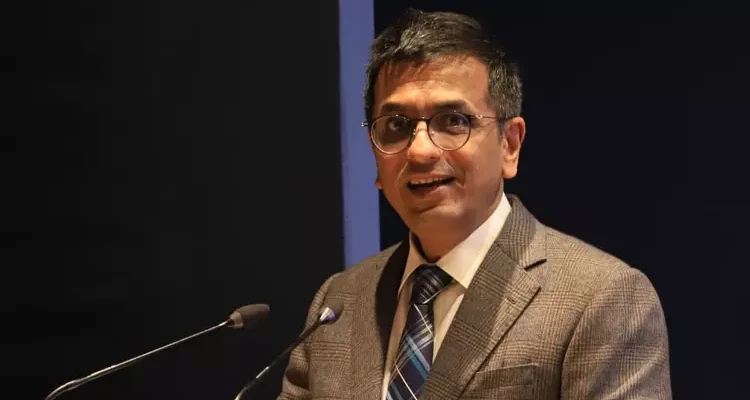
Chief Justice of India D Y Chandrachud stated that he has never encountered political pressure from any government during his 24-year tenure as a judge, allaying concerns about legislative interference.
During a session organized by the Oxford Union, he responded to a question by emphasizing that judges in India are trained to resolve disputes based on established traditions within the constitutional framework, rather than being swayed by the passions of the moment.
“Political pressure, if you ask me in terms of pressure from the government, I would tell you that in the 24 years I have been a judge, I have never faced any such pressure from the powers that be. Some of the democratic traditions we uphold in India include leading lives that are isolated from the political arm of the government,” he stated.
“If you mean ‘political pressure’ in a broader sense of a judge understanding the potential political consequences of a decision, obviously, judges must consider the broader impact of their rulings on the entire political landscape when adjudicating constitutional cases. However, this is not what I consider political pressure,” the CJI clarified.
Regarding “social pressure,” he noted that judges frequently contemplate the societal implications of their judgments.
“Many of the cases we handle have profound societal impacts. As judges, I believe it is our responsibility to understand the implications of our decisions on the social fabric that we ultimately influence,” he remarked.
Addressing the issue of pending cases, CJI Chandrachud highlighted that India has one of the lowest judge-to-population ratios globally. “We simply need more judges. We are working with the government to increase the judiciary’s capacity across all levels,” he stated.
Discussing the impact of social media, Chandrachud acknowledged its prevalence in today’s courts, where minute-by-minute live-tweeting occurs. “Every statement made by a judge is shared on social media. This is something we should not and cannot halt. Naturally, we sometimes face criticism. While some criticism is justified, some is not. However, as judges, we are prepared to accept critique for the work we do,” he affirmed.




